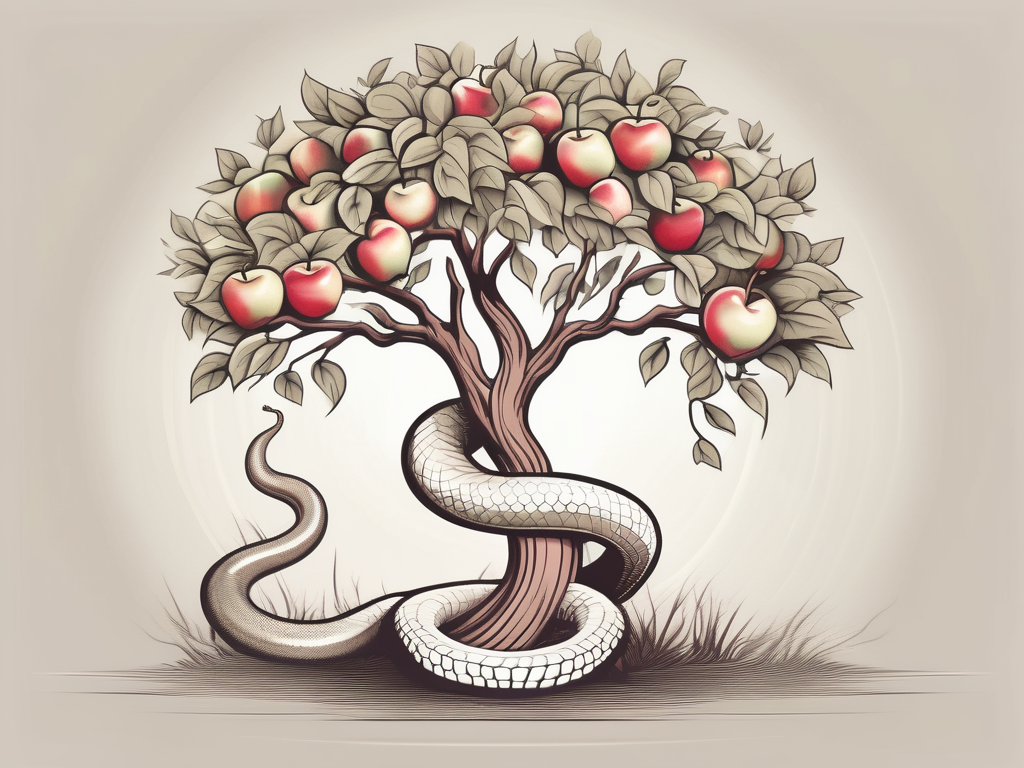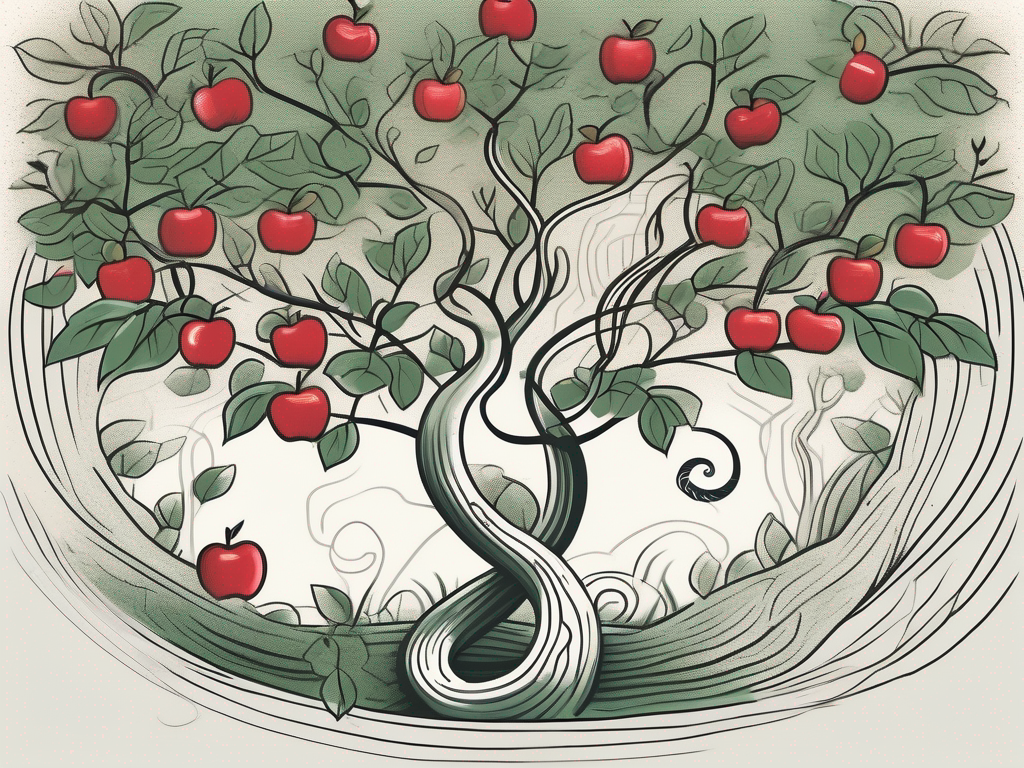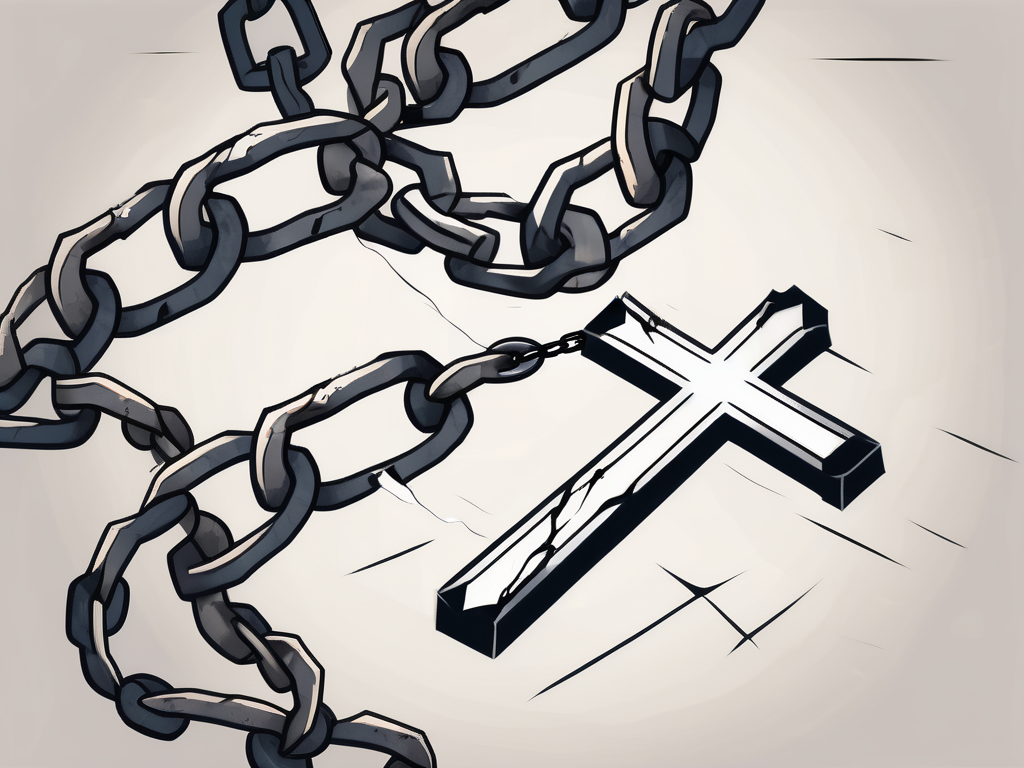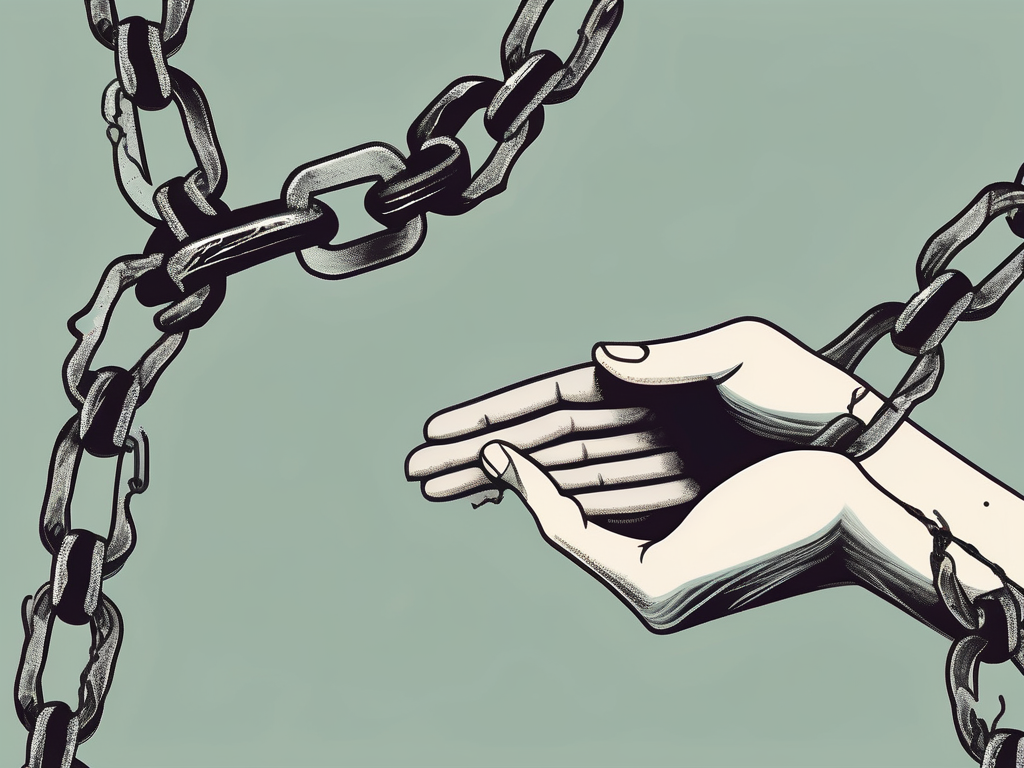In the vast tapestry of biblical narratives, one character whose significance cannot be overlooked is Cain. Through his story and actions, Cain offers us valuable insight into human nature, sin, punishment, forgiveness, and redemption. Understanding the character of Cain and his place in the biblical narrative allows us to delve deeper into these profound theological themes that continue to shape our understanding of spirituality and morality today.
Understanding the Character of Cain
Before we examine the theological implications surrounding Cain, let’s first delve into his early life and family background. Cain was the firstborn son of Adam and Eve, making him a pivotal figure in the biblical account of humanity’s origins. He shared a close bond with his younger brother, Abel, and together, they bore the responsibility of making offerings to God.
This otherwise harmonious atmosphere, however, was marred by the first recorded instance of sibling rivalry. Jealousy consumed Cain’s heart when God favored Abel’s sacrifice over his own. In a fit of rage and envy, he committed the grave sin of fratricide – killing his own brother. The magnitude of this act reverberates throughout the pages of scripture, leaving an indelible mark on humanity’s collective conscience.
Cain’s Early Life and Family
Cain’s upbringing was undoubtedly unique, being the first child ever born. He was witness to his parents’ expulsion from the Garden of Eden, experiencing the consequences of their transgressions firsthand. This event likely shaped his worldview, leading to his ultimate fall from grace.
As Cain grew older, he became a farmer, while his brother Abel embraced the life of a shepherd. Their differing occupations aligned with their offerings to God. Cain brought forth fruits of the earth, while Abel presented the best of his flock. The divine acceptance of Abel’s offering ignited a flame of resentment within Cain, laying the foundation for the tragic events that followed.
Cain’s life as a farmer was marked by toil and labor. He worked the land, tilling the soil and sowing seeds, hoping for a bountiful harvest. His days were filled with the sweat of his brow and the ache in his muscles as he tended to his crops. The earth became his companion, and he found solace in the rhythm of nature’s cycles.
On the other hand, Abel’s life as a shepherd was one of constant vigilance and care. He watched over his flock, protecting them from predators and ensuring their well-being. His days were spent under the open sky, feeling the warmth of the sun on his face and the cool breeze rustling through his hair. He found peace in the quiet solitude of the fields, surrounded by the gentle bleating of his sheep.
Cain and Abel: The First Sibling Rivalry
The story of Cain and Abel serves as a cautionary tale, warning us of the destructive power of jealousy and unchecked anger. In this early account of sibling rivalry, we witness the immense weight of Cain’s sin and the far-reaching consequences it holds.
It is vital to recognize Cain’s actions as a manifestation of his inner turmoil – a cautionary reminder that even the most profound anger can lead us down a treacherous path if left unchecked. This narrative urges us to examine our own hearts and confront the demons of envy and resentment before they consume us entirely.
The rivalry between Cain and Abel was not merely a competition for God’s favor, but a clash of contrasting personalities and aspirations. Cain, the diligent farmer, yearned for recognition and validation for his hard work. Abel, the gentle shepherd, sought harmony and connection with the divine through his offerings. Their differing desires and temperaments set the stage for a tragic confrontation that would forever alter the course of history.
The Mark of Cain: Interpretations and Implications
Following the heinous act of fratricide, God confronted Cain and cast upon him a mark as a sign of his guilt. The nature of this mark remains a subject of much speculation and interpretation among theologians throughout history.
Some argue that the mark was physical, visible to others as a constant reminder of his sin. Others contend that it was a symbolic mark, representing the burden of guilt that Cain carried within his soul. Regardless of interpretation, the mark of Cain serves as a powerful emblem of the indelible, lasting consequences that sin can have on an individual.
The mark, whatever its form, was a constant reminder of Cain’s transgression. It served as a scarlet letter, a permanent stain on his existence. Everywhere he went, he carried the weight of his sin, unable to escape the consequences of his actions. The mark became a symbol of isolation and exile, separating Cain from his fellow human beings and marking him as an outcast.
Throughout history, the mark of Cain has been interpreted in various ways, reflecting the diverse perspectives and theological frameworks of different cultures and eras. Some see it as a mark of divine protection, ensuring that no harm would befall Cain as he wandered the earth. Others view it as a mark of divine judgment, a visible reminder of God’s displeasure and the consequences of Cain’s sin.
Regardless of interpretation, the mark of Cain serves as a powerful reminder of the enduring consequences of our actions. It speaks to the complexity of human nature and the capacity for both good and evil that resides within each of us. The story of Cain and his mark challenges us to reflect on our own choices and the marks we leave on the world, urging us to strive for righteousness and redemption in the face of our own inherent flaws.
Theological Perspectives on Cain
Examining Cain’s significance extends beyond his biblical story, with various theological perspectives highlighting his role in shaping religious thought and beliefs. Let’s explore the interpretations and viewpoints found within Christianity, Judaism, and Islamic traditions.
But before we delve into these perspectives, let’s take a moment to understand the context in which Cain’s story unfolds. According to the Book of Genesis, Cain was the eldest son of Adam and Eve, making him the first human born into this world. His story is one of sibling rivalry, jealousy, and ultimately, a tragic act of violence.
Cain in Christian Interpretations
Within Christianity, Cain’s character is often seen as a representation of the struggle between good and evil, serving as a cautionary example of the consequences of sin. He is linked to the foundational Christian notions of original sin and the need for redemption through faith in Christ.
Christian interpretations of Cain’s story emphasize the gravity of his sin and the resulting punishment. Cain’s act of killing his brother Abel is viewed as the epitome of human rebellion against God’s commandments. This interpretation underscores the belief that sin separates humanity from God and highlights the need for repentance and reconciliation.
While Christianity emphasizes the consequences of Cain’s actions, it also provides a message of hope and redemption. Cain’s story reminds us that even in the darkest of moments, forgiveness and redemption are possible through repentance and faith in God’s grace.
Jewish Perspectives on Cain
In Jewish tradition, Cain’s story raises fundamental questions about justice, moral responsibility, and the nature of evil. He is seen as a reflection of humanity’s inherent capacity for both good and evil, serving as a cautionary reminder of the choices we make and their far-reaching consequences.
Moreover, Jewish interpretations often focus on the idea that the punishment inflicted upon Cain was as much a means of preservation as a consequence. By allowing Cain to live, God acknowledges the importance of human life and affirms the belief in the potential for personal transformation and growth.
Furthermore, Jewish scholars explore the psychological dimensions of Cain’s story, delving into the motivations behind his actions. Some suggest that Cain’s jealousy and anger stemmed from a sense of inadequacy or a feeling of being overlooked by God. This interpretation invites us to reflect on the dangers of unchecked emotions and the importance of cultivating a healthy sense of self-worth.
Cain in Islamic Tradition
Within the Islamic faith, Cain’s story holds similar significance. He is regarded as an embodiment of disobedience and arrogance, demonstrating the destructive nature of envy and anger.
Islamic teachings emphasize the importance of self-discipline and self-control, using Cain’s story to highlight the dangers of succumbing to one’s base desires. This narrative serves as a reminder of the need for humility and submission to God’s will as a path towards righteousness.
Islamic scholars also explore the concept of personal responsibility in Cain’s story. They emphasize that each individual is accountable for their actions and choices, and that the consequences of those choices extend beyond the individual to affect the wider community. This understanding underscores the Islamic belief in the interconnectedness of humanity and the importance of fostering a just and compassionate society.
In conclusion, the story of Cain resonates deeply within Christianity, Judaism, and Islamic traditions, offering valuable insights into the human condition, the consequences of our choices, and the potential for redemption. By examining these theological perspectives, we gain a richer understanding of the complexities and lessons embedded within Cain’s narrative.
Cain’s Influence on Biblical Themes
Aside from his theological significance, Cain’s story reverberates through the Bible, leaving an indelible mark on various themes and concepts that shape our understanding of spirituality and morality.
Sin and Punishment in the Bible
Cain’s story sheds light on the biblical concept of sin and the subsequent punishment incurred. His expulsion from his homeland serves as a reminder of the consequences that sin brings, intensifying the gravity of his rebellion and instilling a profound sense of accountability.
By confronting and punishing Cain, God establishes a precedent for justice and accountability, emphasizing the need for individuals to reckon with their actions and bear the consequences thereof. Cain’s story thus reinforces the notion that there are spiritual and moral repercussions for our choices, highlighting the deep-seated connection between sin and punishment in the biblical narrative.
Forgiveness and Redemption in Biblical Context
Despite the severity of Cain’s transgression, his story also offers a glimmer of hope and the possibility of redemption. It reveals the divine capacity for forgiveness and the transformative power of genuine repentance and seeking God’s grace.
Cain’s story serves as a profound reminder that despite our own flawed nature, we have the opportunity to seek forgiveness and redemption. It showcases God’s unwavering love and willingness to extend mercy, even in the face of the gravest sins.
The Legacy of Cain in Modern Interpretations
Cain’s significance extends far beyond biblical narratives, leaving an indelible mark on various aspects of modern society, including literature, popular culture, and ongoing theological debates.
Cain in Literature and Popular Culture
Throughout history, numerous literary works and artistic endeavors have been inspired by and reference the complex character of Cain. His story serves as a source of inspiration for exploring themes of human nature, morality, and the tension between good and evil.
From John Steinbeck’s acclaimed novel, “East of Eden,” to films such as “The Dark Knight,” Cain’s story continues to captivate and provoke meaningful introspection into the human condition.
Theological Debates Surrounding Cain Today
Cain’s character continues to spark theological debates and discussions among scholars, religious leaders, and believers alike. Questions surrounding the mark of Cain, the nature of his punishment, and the implications for humanity remain subjects of ongoing exploration and interpretation.
These debates prompt us to reflect on the enduring relevance of Cain’s story and its implications for our understanding of sin, punishment, forgiveness, and redemption. The legacy of Cain invites us to engage in thoughtful dialogue and introspection, expanding our theological understanding and deepening our connection to the divine.
Concluding Thoughts on Cain’s Significance in the Bible
In conclusion, Cain’s character holds immense significance in the Bible, offering valuable lessons on human nature, sin, punishment, forgiveness, redemption, and the enduring power of divine love.
By examining Cain’s story from multiple angles and considering different theological perspectives, we gain a more comprehensive understanding of the profound impact this complex figure has had on religious thought throughout history.
Ultimately, the story of Cain challenges us to confront the darker aspects of our humanity, urging us towards self-reflection, personal growth, and the pursuit of righteousness. It teaches us that even in our moments of weakness, forgiveness and redemption are within reach through genuine repentance and God’s unwavering grace.












